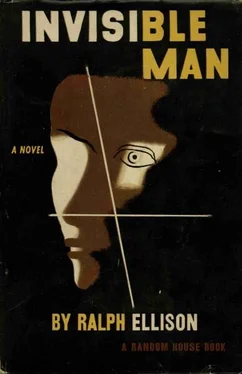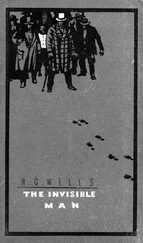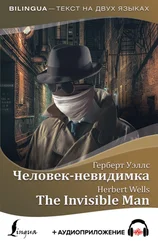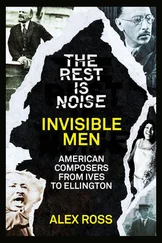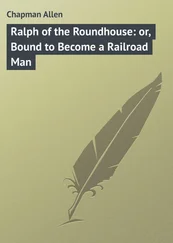Ralph Ellison - Invisible man
Здесь есть возможность читать онлайн «Ralph Ellison - Invisible man» весь текст электронной книги совершенно бесплатно (целиком полную версию без сокращений). В некоторых случаях можно слушать аудио, скачать через торрент в формате fb2 и присутствует краткое содержание. Год выпуска: 1995, ISBN: 1995, Издательство: Vintage Books, Жанр: Классическая проза, на английском языке. Описание произведения, (предисловие) а так же отзывы посетителей доступны на портале библиотеки ЛибКат.
- Название:Invisible man
- Автор:
- Издательство:Vintage Books
- Жанр:
- Год:1995
- ISBN:9780679732761
- Рейтинг книги:4 / 5. Голосов: 1
-
Избранное:Добавить в избранное
- Отзывы:
-
Ваша оценка:
- 80
- 1
- 2
- 3
- 4
- 5
Invisible man: краткое содержание, описание и аннотация
Предлагаем к чтению аннотацию, описание, краткое содержание или предисловие (зависит от того, что написал сам автор книги «Invisible man»). Если вы не нашли необходимую информацию о книге — напишите в комментариях, мы постараемся отыскать её.
The Waste Land,
Invisible man — читать онлайн бесплатно полную книгу (весь текст) целиком
Ниже представлен текст книги, разбитый по страницам. Система сохранения места последней прочитанной страницы, позволяет с удобством читать онлайн бесплатно книгу «Invisible man», без необходимости каждый раз заново искать на чём Вы остановились. Поставьте закладку, и сможете в любой момент перейти на страницу, на которой закончили чтение.
Интервал:
Закладка:
He fell forward on his knees, like a man saying his prayers just as a heavy-set man in a hat with a turned-down brim stepped from around the newsstand and yelled a protest. I couldn't move. The sun seemed to scream an inch above my head. Someone shouted. A few men were starting into the street. The cop was standing now and looking down at Clifton as though surprised, the gun in his hand. I took a few steps forward, walking blindly now, unthinking, yet my mind registering it all vividly. Across and starting up on the curb, and seeing Clifton up closer now, lying in the same position, on his side, a huge wetness growing on his shirt, and I couldn't set my foot down. Cars sailed close behind me, but 1 couldn't take the step that would raise me up to the walk. I stood there, one leg in the street and the other raised above the curb, hearing whistles screeching and looked toward the library to see two cops coming on in a lunging, big-bellied run. I looked back to Clifton, the cop was waving me away with his gun, sounding like a boy with a changing voice.
"Get back on the other side," he said. He was the cop that I'd passed on Forty-third a few minutes before. My mouth was dry.
"He's a friend of mine, I want to help ..." I said, finally stepping upon the curb.
"He don't need no help, Junior. Get across that street!"
The cop's hair hung on the sides of his face, his uniform was dirty, and I watched him without emotion, hesitated, hearing the sound of footfalls approaching. Everything seemed slowed down. A pool formed slowly on the walk. My eyes blurred. I raised my head. The cop looked at me curiously. Above in the park I could hear the furious flapping of wings; on my neck, the pressure of eyes. I turned. A round-headed, apple-cheeked boy with a thickly freckled nose and Slavic eyes leaned over the fence of the park above, and now as he saw me turn, he shrilled something to someone behind him, his face lighting up with ecstasy ... What does it mean, I wondered, turning back to that to which I did not wish to turn.
There were three cops now, one watching the crowd and the others looking at Clifton. The first cop had his cap on again.
"Look, Junior," he said very clearly, "I had enough trouble for today -- you going to get on across that street?"
I opened my mouth but nothing would come. Kneeling, one of the cops was examining Clifton and making notes on a pad.
"I'm his friend," I said, and the one making notes looked up.
"He's a cooked pigeon, Mac," he said. "You ain't got any friend any more."
I looked at him.
"Hey, Mickey," the boy above us called, "the guy's out cold!"
I looked down. "That's right," the kneeling cop said. "What's your name?"
I told him. I answered his questions about Clifton as best I could until the wagon came. For once it came quickly. I watched numbly as they moved him inside, placing the box of dolls in with him. Across the street the crowd still churned. Then the wagon was gone and I started back toward the subway.
"Say, mister," the boy's voice shrilled down. "Your friend sure knows how to use his dukes. Biff, bang! One, two, and the cop's on his ass!"
I bowed my head to this final tribute, and now walking away in the sun I tried to erase the scene from my mind.
I WANDERED down the subway stairs seeing nothing, my mind plunging. The subway was cool and I leaned against a pillar, hearing the roar of trains passing across on the other side, feeling the rushing roar of air. Why should a man deliberately plunge outside of history and peddle an obscenity, my mind went on abstractedly. Why should he choose to disarm himself, give up his voice and leave the only organization offering him a chance to "define" himself? The platform vibrated and I looked down. Bits of paper whirled up in the passage of air, settling quickly as a train moved past. Why had he turned away? Why had he chosen to step off the platform and fall beneath the train? Why did he choose to plunge into nothingness, into the void of faceless faces, of soundless voices, lying outside history? I tried to step away and look at it from a distance of words read in books, half-remembered. For history records the patterns of men's lives, they say: Who slept with whom and with what results; who fought and who won and who lived to lie about it afterwards. All things, it is said, are duly recorded -- all things of importance, that is. But not quite, for actually it is only the known, the seen, the heard and only those events that the recorder regards as important that are put down, those lies his keepers keep their power by. But the cop would be Clifton's historian, his judge, his witness, and his executioner, and I was the only brother in the watching crowd. And I, the only witness for the defense, knew neither the extent of his guilt nor the nature of his crime. Where were the historians today? And how would they put it down?
I stood there with the trains plunging in and out, throwing blue sparks. What did they ever think of us transitory ones? Ones such as I had been before I found Brotherhood -- birds of passage who were too obscure for learned classification, too silent for the most sensitive recorders of sound; of natures too ambiguous for the most ambiguous words, and too distant from the centers of historical decision to sign or even to applaud the signers of historical documents? We who write no novels, histories or other books. What about us, I thought, seeing Clifton again in my mind and going to sit upon a bench as a cool gust of air rolled up the tunnel.
A body of people came down the platform, some of them Negroes. Yes, I thought, what about those of us who shoot up from the South into the busy city like wild jacks-in-the-box broken loose from our springs -- so sudden that our gait becomes like that of deep-sea divers suffering from the bends? What about those fellows waiting still and silent there on the platform, so still and silent that they clash with the crowd in their very immobility; standing noisy in their very silence; harsh as a cry of terror in their quietness? What about those three boys, coming now along the platform, tall and slender, walking stiffly with swinging shoulders in their well-pressed, too-hot-for-summer suits, their collars high and tight about their necks, their identical hats of black cheap felt set upon the crowns of their heads with a severe formality above their hard conked hair? It was as though I'd never seen their like before: Walking slowly, their shoulders swaying, their legs swinging from their hips in trousers that ballooned upward from cuffs fitting snug about their ankles; their coats long and hip-tight with shoulders far too broad to be those of natural western men. These fellows whose bodies seemed -- what had one of my teachers said of me? -- "You're like one of these African sculptures, distorted in the interest of a design." Well, what design and whose?
I stared as they seemed to move like dancers in some kind of funeral ceremony, swaying, going forward, their black faces secret, moving slowly down the subway platform, the heavy heel-plated shoes making a rhythmical tapping as they moved. Everyone must have seen them, or heard their muted laughter, or smelled the heavy pomade on their hair -- or perhaps failed to see them at all. For they were men outside of historical time, they were untouched, they didn't believe in Brotherhood, no doubt had never heard of it; or perhaps like Clifton would mysteriously have rejected its mysteries; men of transition whose faces were immobile.
I got up and went behind them. Women shoppers with bundles and impatient men in straw hats and seersucker suits stood along the platform as they passed. And suddenly I found myself thinking, Do they come to bury the others or to be entombed, to give life or to receive it? Do the others see them, think about them, even those standing close enough to speak? And if they spoke back, would the impatient businessmen in conventional suits and tired housewives with their plunder, understand? What would they say? For the boys speak a jived-up transitional language full of country glamour, think transitional thoughts, though perhaps they dream the same old ancient dreams. They were men out of time -- unless they found Brotherhood. Men out of time, who would soon be gone and forgotten ... But who knew (and now I began to tremble so violently I had to lean against a refuse can) -- who knew but that they were the saviors, the true leaders, the bearers of something precious? The stewards of something uncomfortable, burdensome, which they hated because, living outside the realm of history, there was no one to applaud their value and they themselves failed to understand it. What if Brother Jack were wrong? What if history was a gambler, instead of a force in a laboratory experiment, and the boys his ace in the hole? What if history was not a reasonable citizen, but a madman full of paranoid guile and these boys his agents, his big surprise! His own revenge? For they were outside, in the dark with Sambo, the dancing paper doll; taking it on the lambo with my fallen brother, Tod Clifton (Tod, Tod) running and dodging the forces of history instead of making a dominating stand.
Читать дальшеИнтервал:
Закладка:
Похожие книги на «Invisible man»
Представляем Вашему вниманию похожие книги на «Invisible man» списком для выбора. Мы отобрали схожую по названию и смыслу литературу в надежде предоставить читателям больше вариантов отыскать новые, интересные, ещё непрочитанные произведения.
Обсуждение, отзывы о книге «Invisible man» и просто собственные мнения читателей. Оставьте ваши комментарии, напишите, что Вы думаете о произведении, его смысле или главных героях. Укажите что конкретно понравилось, а что нет, и почему Вы так считаете.
